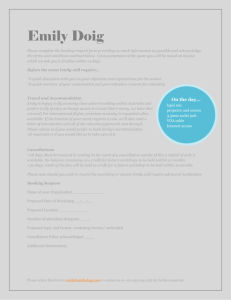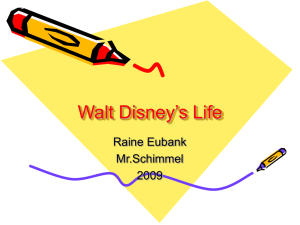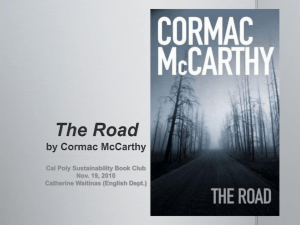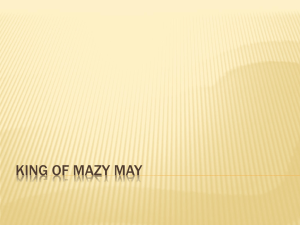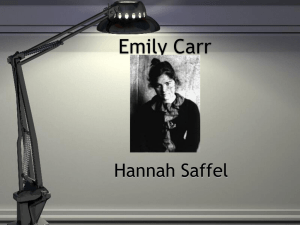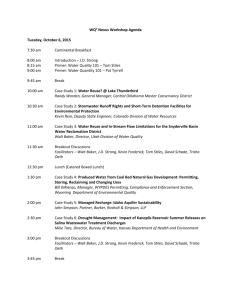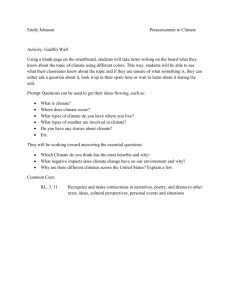example 1
advertisement
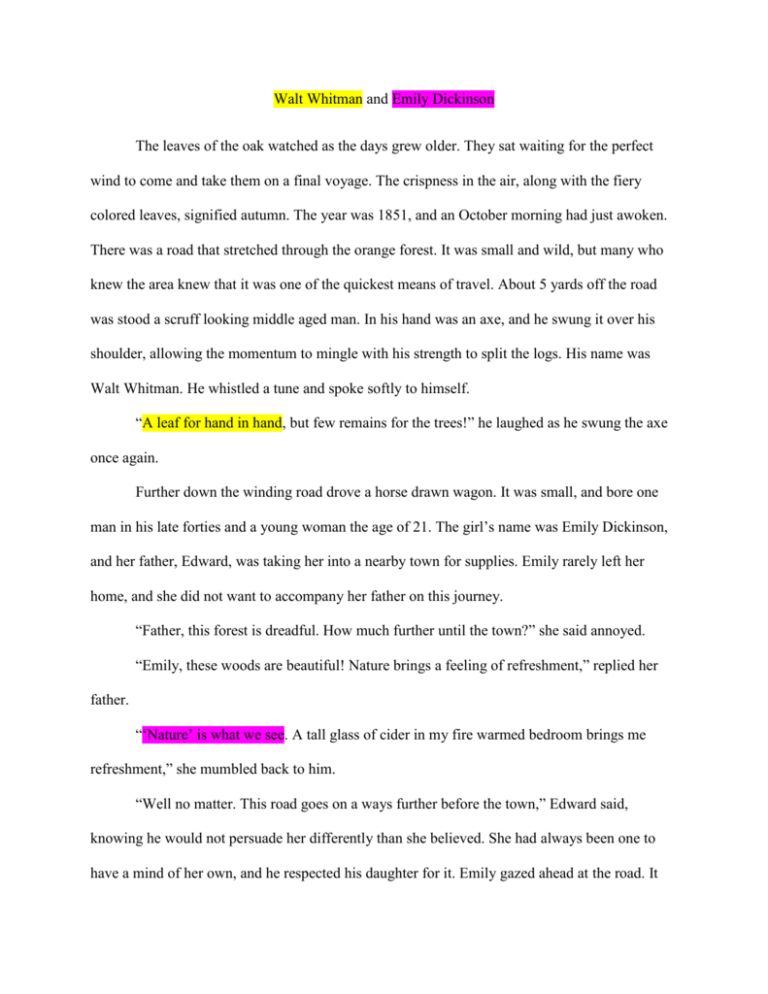
Walt Whitman and Emily Dickinson The leaves of the oak watched as the days grew older. They sat waiting for the perfect wind to come and take them on a final voyage. The crispness in the air, along with the fiery colored leaves, signified autumn. The year was 1851, and an October morning had just awoken. There was a road that stretched through the orange forest. It was small and wild, but many who knew the area knew that it was one of the quickest means of travel. About 5 yards off the road was stood a scruff looking middle aged man. In his hand was an axe, and he swung it over his shoulder, allowing the momentum to mingle with his strength to split the logs. His name was Walt Whitman. He whistled a tune and spoke softly to himself. “A leaf for hand in hand, but few remains for the trees!” he laughed as he swung the axe once again. Further down the winding road drove a horse drawn wagon. It was small, and bore one man in his late forties and a young woman the age of 21. The girl’s name was Emily Dickinson, and her father, Edward, was taking her into a nearby town for supplies. Emily rarely left her home, and she did not want to accompany her father on this journey. “Father, this forest is dreadful. How much further until the town?” she said annoyed. “Emily, these woods are beautiful! Nature brings a feeling of refreshment,” replied her father. “‘Nature’ is what we see. A tall glass of cider in my fire warmed bedroom brings me refreshment,” she mumbled back to him. “Well no matter. This road goes on a ways further before the town,” Edward said, knowing he would not persuade her differently than she believed. She had always been one to have a mind of her own, and he respected his daughter for it. Emily gazed ahead at the road. It winded and turned. After a slight turn, she saw the road up ahead, and noticed a tree lay in the road. “Father, how are we to pass that fallen tree?” she asked. “I am not sure. I have not an axe with me,” he said, pondering the predicament. “Look, there, a man with an axe!” Walt heard the sound of the coming wagon before he saw it. He turned to see a brown horse pulling a man and a woman. He was too far away to see their faces, but they continued on the road towards him. As they drew near, he noticed the man was older; perhaps, he was the girl’s father. Walt then looked at the young woman. Despite the cool October breeze blowing steadily, the woman took his breath away. He rushed to take in every one of her features at once. “Good morning!” he called out to them. “Good morning sir,” the man replied. “The road ahead seems to be blocked by a fallen tree. Might we borrow your axe to clear the way?” “Aye, more than just my axe, I’ll lend you my arm as well,” Walt generously offered. “Thank you, sir. Is it common to travel this road and sometimes hit a tree?” asked Emily. She found herself very fond of the stranger. “Aye, more than once have I passed through these woods and found a fallen tree. I live behind the mountain and the wood, and I come here often. My name is Walt Whitman.” “It is a pleasure to meet you Walt. My name is Emily, and this is my father Edward Dickinson,” she said pointing to her father. “It is nice to meet the both of you. Well, let us make haste in removing this tree from your path,” Walt said as he moved toward the fallen tree. “Emily, have you ever seen the sea? It’s quite a beautiful site,” Walt asked as swung the axe over his head. “No, I never saw the sea. What is it like?” she asked. Walt had awoken her curiosity, and he was aware. “On the beach at night, you can see the stars like never before. Many times have I stood in the sand, watching the east, the autumn sky. Slowly ascends large and calm the lord-star Jupiter. You should accompany me to the ocean. You simply must see it.” “A slash of blue would do me good. Rarely do I get out. So long have I spent far in land- by the oceans passed- I would very much like to see the sea.” Walt and Emily then went about traveling to the beach. It was a long journey, but the two had the opportunity to better get to know one another. When they finally arrived, night had fallen. They walked along the shore together. The night was cloudy upon their arrival. “Faith is a fine invention, but I would very much like to see the stars with my own eyes,” Emily spoke in despair. “The ravening clouds shall not long be victorious; they shall not long posses the sky,” Walt assured her. A few minutes later, as if by command, the clouds parted and the stars and moon shined through the sky. “It’s beautiful. Morning means just risk; I wish this night would last forever,” Emily spoke softly as Walt hugged her. “Weep not my darling,” Walt replied. “Ah pity - then,” she continued to weep. “With these kisses let me remove your tears.” “Let us find a ship that can take us to take us lands away,” Emily said, hoping he would agree. “Somewhere there is a place for us to be together, but I fear we may not find it,” Walt said. “But something there is that is more immortal even than the stars, and that is our love.” “Allowing my love for you to blossom would be heaven to me. Yet ‘Heaven’ is what I cannot reach. I’m sorry Walt. We must go our own way.” The two enjoyed the rest of their one night together, but they departed company when morning came. Emily became somewhat of a recluse, even more than she was before. Walt went on to live a simple life and help wounded soldiers in the Civil War. However, they never forgot one another. By Walt Whitman: A Leaf for Hand in Hand A Riddle Song On the Beach at Night By Emily Dickinson: Nature is What we See We Grow Accustomed to the Dark I Never saw a Moor A Slash of Blue Water is Taught by Thirst Faith is a Fine Invention “Morning” means “Milking” A Burdock clawed my Gown There is no Frigate like a Book “Heaven” is what I cannot Reach
